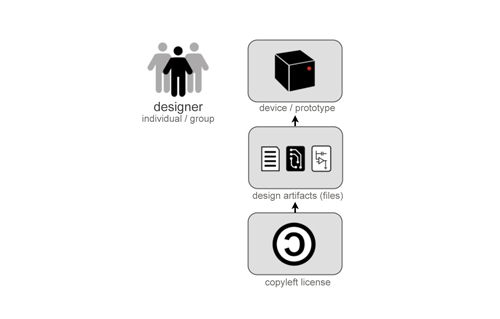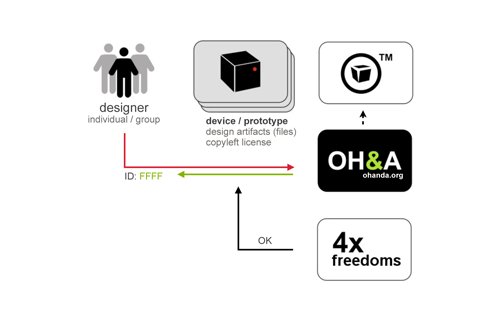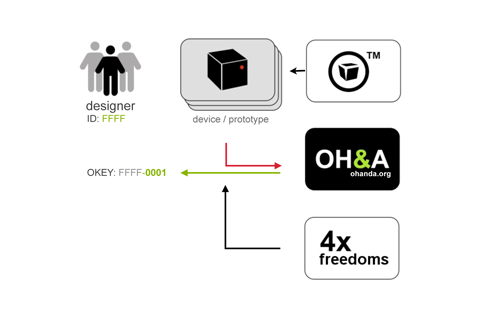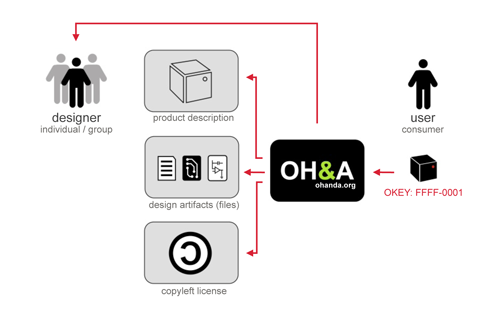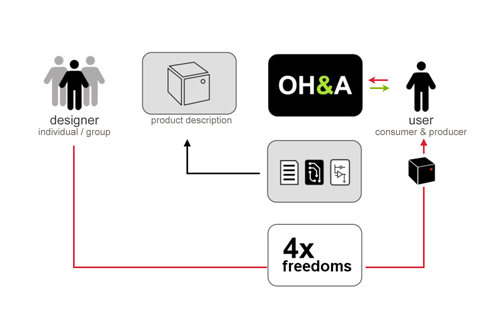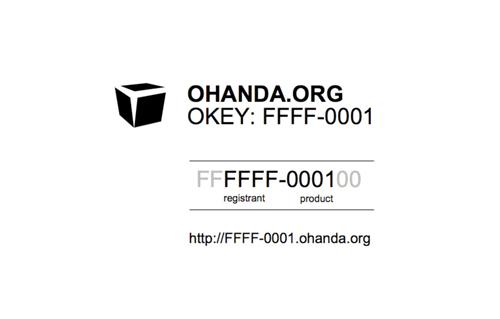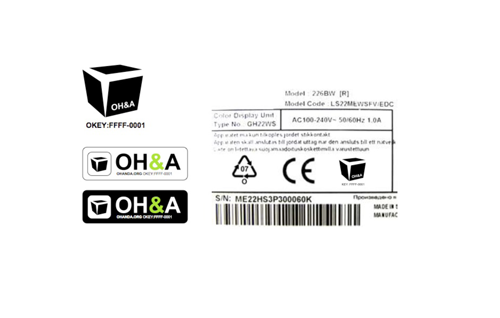Open Source Hardware and Design Alliance
OHANDA is an initiative to foster sustainable sharing of open hardware and design. It was first drafted at the GOSH!-Grounding Open Source Hardware summit at the Banff Centre in July 2009 and one of the first goals of the project is to build a service for sharing open hardware designs which includes a certification model and a registration. OHANDA is in process. The process is open.
Why can't we just use any copyleft license? In short: copyleft is legally based on copyright, which can not be effectively enforced in the physical world. The equivalent would be patents, but patenting hardware to make it open is slow and expensive.
The proposed solution with OHANDA is a Trademark. The trademark will allow the developer to connect a copyleft license with any kind of physical device through Ohanda. Think the trademark like other common certificate such as recycle or CE mark.
How Does It Work?
4 Freedoms
The four freedoms from Free Software Definition lay the foundation for sharing hardware through OHANDA. The adaptations below are made by just replacing the term "program" with the term(s) "device /& design". This is may not be the most understandable way of describing freedoms of sharing open hardware, but it describes the degree of openness OHANDA stands for. By granting these four freedoms for all documentation attached to a product, the sharing is on sustainable basis.
Freedom 0.
The freedom to use the device for any purpose
Freedom 1.
The freedom to study how the device works and change it to make it to do what you wish. Access to the complete design is precondition to this.
Freedom 2.
Redistribute the device and/or design (remanufacture)
Freedom 3.
The freedom to improve the device and/or design, and release your improvements (and modified versions in general) to the public, so that the whole community benefits. Access to the complete design is precondition to this.
Who owns it?
Ideally nobody - and everybody. A legal entity is needed for registering a trademark. This need to be either credible existing not-for-profit organisation or a new one with enough transparency in its operation that the ownership of this common asset does not become an issue. Distributing the ownership gradually among all who share their hardware feels right thing to do, but may turn out too complex to manage. This is in process, existing certification models are being studied for best practices.
GOSH 2009 Participants
- Paul Badger
- Jonah Brucker-Cohen
- Diana Burgoyne
- Alexandre Castonguay
- Marie Cieri
- Florian Cramer
- Steve Daniels
- Chris Csikszentmihályi
- Brian Evans
- Peter Flemming
- Gwendolyn Floyd
- Gisle Frøysland
- Tim Hanson
- Darsha Hewitt
- Anselm Hook
- Pamela Jennings
- Daniel Jolliffe
- Joshua Kauffman
- Susan Kennard
- André Knörig
- Jon Kuniholm
- Caroline Langill
- Angus Leech
- Zachary Lieberman
- David A. Mellis
- Katherine Moriwaki
- Juergen Neumann
- Dr. N. Sai Bhaskar Reddy
- Peggy Reynolds
- Jessica Rylan
- Paige Sáez
- Ravi Shukla
- Bengt Sjölén
- Matt Stack
- Tuomo Tammenpää
- James Wallbank
- Norman T. White
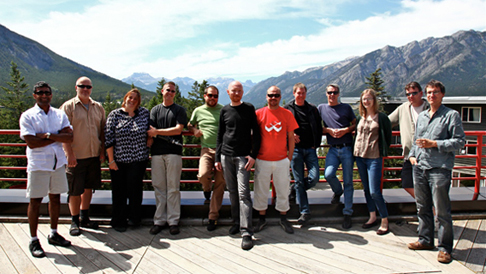
You Are Invited.
EMAIL: webcontact@ohanda.org
